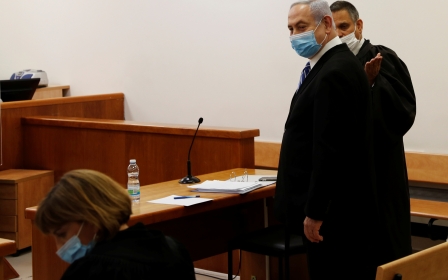Coronavirus: Israel cabinet limits cellphone surveillance to ‘special cases’

The Israeli cabinet on Sunday limited the involvement of the Shin Bet security service in the cellphone-tracking of people infected by the coronavirus, saying the measure was to be the last resort when epidemiological investigation proved insufficient.
Circumventing parliament in March, as the coronavirus spread, the cabinet approved emergency regulations that enabled the use of the technology, which is usually deployed for supposed counterterrorism measures. Privacy watchdog groups have challenged the practice in court, Reuters said.
New MEE newsletter: Jerusalem Dispatch
Sign up to get the latest insights and analysis on Israel-Palestine, alongside Turkey Unpacked and other MEE newsletters
MEE reported last month that Israel was using the sophisticated cyber-surveillance tools to track its own citizens. Marwa Fatafta, policy manager at internet rights group Access Now, said: "There are lots of question marks about what these tools mean for our freedoms to privacy and expression."
While the Shin Bet has said they would only be used for fighting the pandemic, Fatafta said they were being used with a lack of transparency, little oversight, and go far beyond the monitoring efforts of other countries.
On Sunday, citing waning contagion rates in Israel, the cabinet amended regulations so that phone tracking is warranted "in specific and special cases only, where location ... cannot be completed with epidemiological investigation using other methods".
Still, a cabinet statement said the reduced scope of Shin Bet involvement could be reviewed if a coronavirus surge is feared.
Israel - with a population of nine million - has reported 16,712 coronavirus cases and 279 deaths. Schools and businesses have been reopening amid cautious optimism about health policies.
A parliamentary oversight panel and the cabinet have been conferring on legislation that would regulate Shin Bet involvement.
Middle East Eye delivers independent and unrivalled coverage and analysis of the Middle East, North Africa and beyond. To learn more about republishing this content and the associated fees, please fill out this form. More about MEE can be found here.





